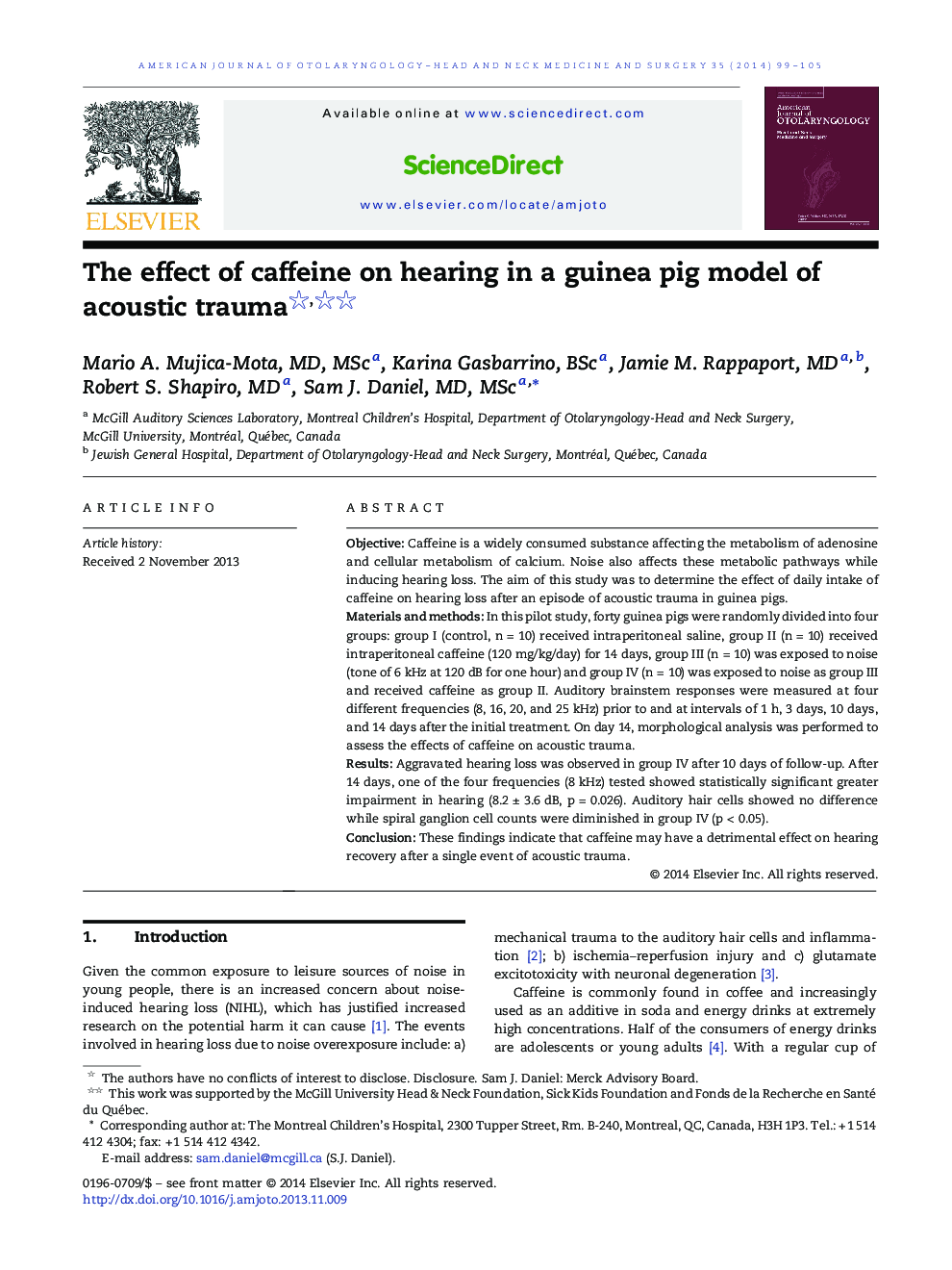| Article ID | Journal | Published Year | Pages | File Type |
|---|---|---|---|---|
| 4103484 | American Journal of Otolaryngology | 2014 | 7 Pages |
ObjectiveCaffeine is a widely consumed substance affecting the metabolism of adenosine and cellular metabolism of calcium. Noise also affects these metabolic pathways while inducing hearing loss. The aim of this study was to determine the effect of daily intake of caffeine on hearing loss after an episode of acoustic trauma in guinea pigs.Materials and methodsIn this pilot study, forty guinea pigs were randomly divided into four groups: group I (control, n = 10) received intraperitoneal saline, group II (n = 10) received intraperitoneal caffeine (120 mg/kg/day) for 14 days, group III (n = 10) was exposed to noise (tone of 6 kHz at 120 dB for one hour) and group IV (n = 10) was exposed to noise as group III and received caffeine as group II. Auditory brainstem responses were measured at four different frequencies (8, 16, 20, and 25 kHz) prior to and at intervals of 1 h, 3 days, 10 days, and 14 days after the initial treatment. On day 14, morphological analysis was performed to assess the effects of caffeine on acoustic trauma.ResultsAggravated hearing loss was observed in group IV after 10 days of follow-up. After 14 days, one of the four frequencies (8 kHz) tested showed statistically significant greater impairment in hearing (8.2 ± 3.6 dB, p = 0.026). Auditory hair cells showed no difference while spiral ganglion cell counts were diminished in group IV (p < 0.05).ConclusionThese findings indicate that caffeine may have a detrimental effect on hearing recovery after a single event of acoustic trauma.
